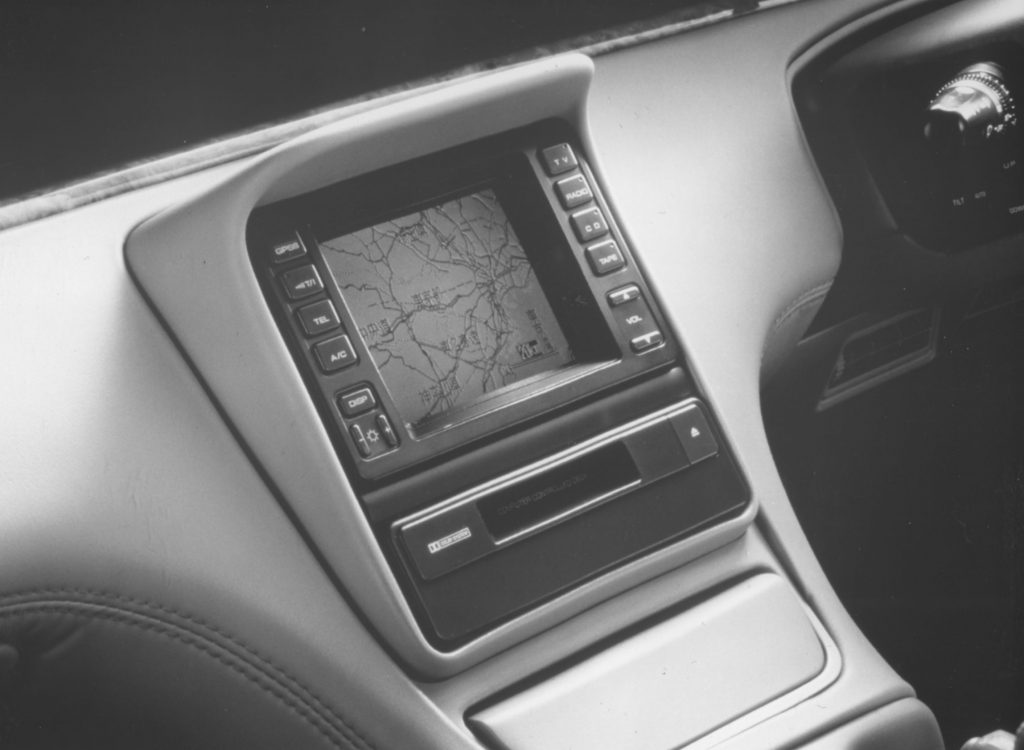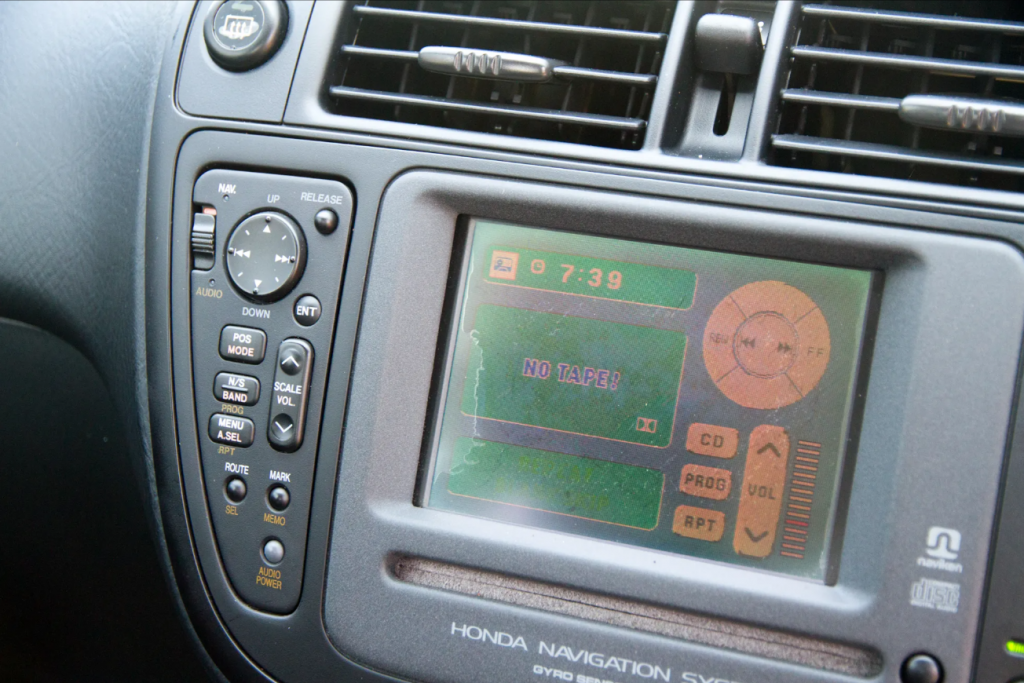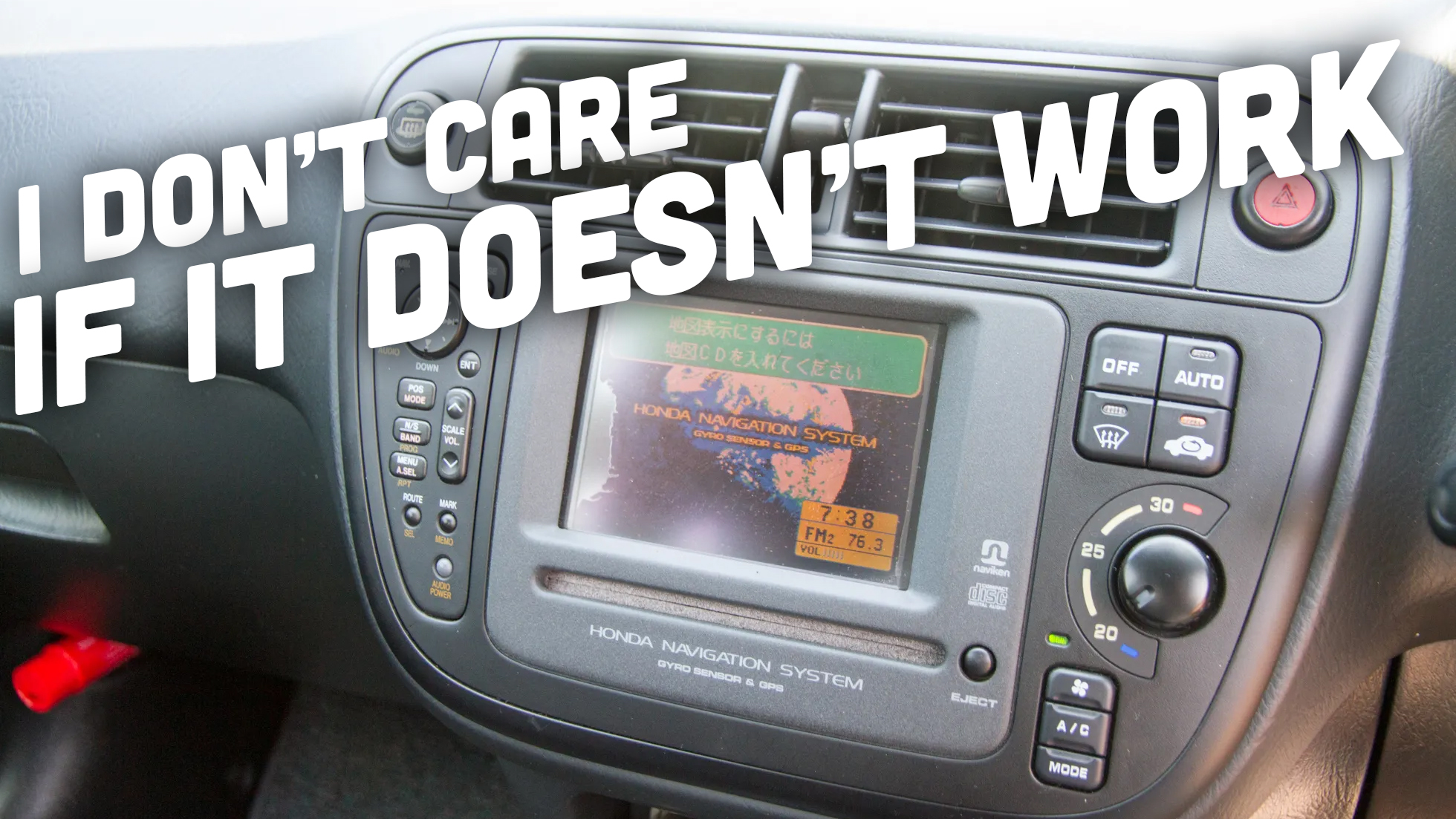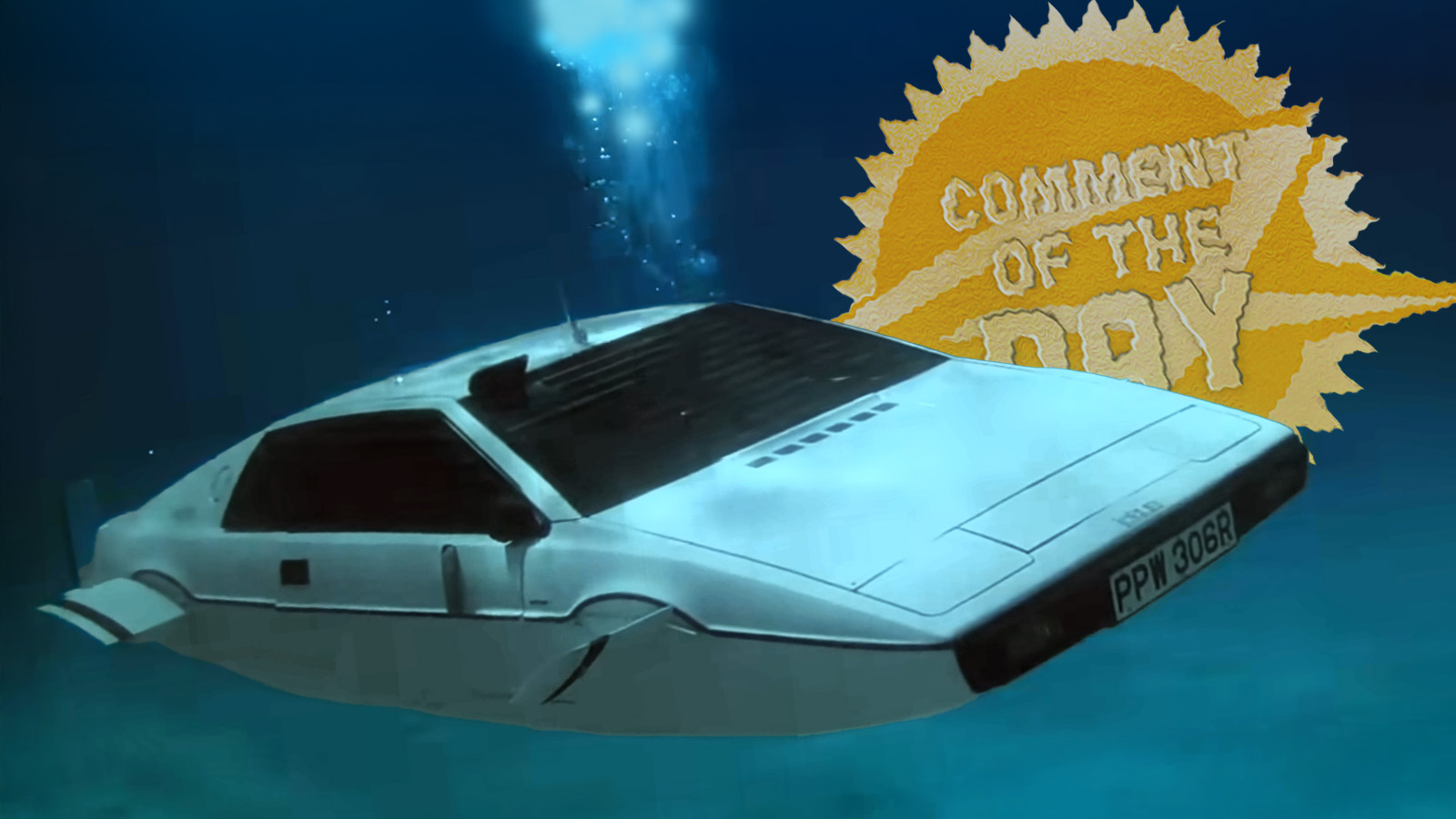Screens have their place in modern cars. I’d be remiss not to praise their usefulness in displaying the dozens of functions and various multimedia that manufacturers stuff into their vehicles. But on the whole, I’m not a fan. They ruin the look of most dashboards, and oftentimes, they’re a cause of dangerous driver distraction. Don’t get me started on carmakers that use screens for stuff like climate control or headlights.
Whenever I buy a car, I try to avoid having to deal with a screen. Thankfully, my tastes skew cheaper and older, so usually, I’m able to steer clear of anything that already has a screen installed. I do have one exception, however: 1990s-era navigation systems.
I was inspired to write this post while perusing online auction site Bring a Trailer, when this incredibly well-specced 1997 Honda Civic SiR popped up on my screen. The perfect purple paint and confetti-themed cloth interior caught my eye, but it was the period-correct, factory-installed navigation system that really drew me in.
Japanese manufacturers were the forerunners of in-car navigation systems. Honda was the first company to introduce such a system, bringing the Electro Gyrocator to market as a dealer-installed option in 1981. This was long before civilian vehicles had access to Transit, the world’s first global satellite navigation system. Instead, the Gyrocator used what’s known as a “dead reckoning” method to geolocate the car. Using a helium gas-powered onboard gyroscope, the system could determine a vehicle’s path of travel through acceleration, braking, and turning inputs. It only needed to know where it started to plot an accurate route.

It wouldn’t be until 1990 when Mazda introduced the first true, GPS-guided navigation system for civilian use, in the wonderfully weird, tri-rotor-powered Eunos Cosmo. That same year, Honda would introduce a GPS system of its own in the second-generation Legend. The system you see here is an evolved version of that concept. Interestingly, it still uses gyro sensors—not for geolocating the car, but to sense lane wandering to warn the driver. Neat stuff.

Just look at this thing! I’ll admit, I had no idea the Civic could be optioned with factory nav back in ’97. But knowing that Honda was the first to bring automotive navigation systems to market, I guess I shouldn’t be surprised. Seeing such an advanced piece of tech paired with what’s traditionally known as a lightweight, barebones performance car elevates a sense of joy in me. As the listing notes, the system “works until it becomes overheated, causing the screen to malfunction until it cools down.” Somehow, that makes it even more endearing.
Here’s a video of this working:
Even if the system functioned correctly, I’d probably have a hard time finding a corresponding DVD disc to work with North American roads. And even if I did find such a disc, it’s likely so outdated that roads no longer match what’s on the disc. While this nav has fully morphed into a novelty, I can’t help but smile every time I look at it.
The ’97 SiR in question sold for just over $16,000 last week. Considering the cool color and the fact it has just 12,000 kilometers on the clock, I’d say someone got a great deal. Whether they’ll appreciate that now-useless screen in the dash as much as I will, well, who knows.
Top photo: Bring a Trailer









I always wanted one like they had in an older car in the film Until the End of the World.
In traffic, Claire gets off the autostrada.
Navigation says,
“You’re leaving the map now.
You’re on your own, {Claire}”
I remember that movie somehow from ages ago just as you mention it. I think it’s a Rover, maybe a P6, she was driving.
And their version of Google is an animated bear on screen.
I’m have to get it on a watch list.
Are you the autopian’s new news editor?
I used to really like screens in cars when I first got to be in a car that had one, my mom’s 2006 Camry.
It flips around and there’s a 6-cd changer, it was sweet.
Then that screen died about 5 years ago and we still haven’t replaced it because they’re way overpriced.
Now imagine that in a car that uses it for more than just a radio and constantly outdated map.
That genuinely sounds like something Torch made up in one of his fever dreams.
I can’t wait til their next album…
“works until it becomes overheated, causing the screen to malfunction until it cools down.”
My Mercedes COMAND system does the same thing – and it’s 12 years newer.
Honda’s screens still have issues with overheating, so I guess not much has changed.
By god, that Civic is one tempting listing…
I bought a replacement map DVD for the nav system in my E39; just have to repair the broken wire on the wheel speed sensor plug, then I can see if it’ll work. Probably should get the car drivable first, though.
My favorite thing about the second-gen nav system in later-model E39/E53/E38s, though, is that the entire screen motors down at the push of a button…to reveal the slot for the cassette player behind it!
It’s terrible. First off, that DVD is about 10 years old now, so there are a lot of roads that aren’t on it. Next, the DVD drive can fail at any time. Mine wouldn’t shut off, which lead to perpetual battery drain problems until I got a replacement one, and finding a good one was difficult 8 years ago. Lastly, inputting a new destination is a pain. Because I had a e38 with the digital amp, it was difficult (at the time, don’t know if an android unit is now available) to replace the audio system with anything else.
The oldest vehicle with built-in Nav I have had was my ’01 Range Rover HSE. It was hilariously terrible, though it had an interesting “off road mode” where it would keep track of where you came from, so you could theoretically get back again. My ’16 M235i had it, and so did my ’18 Fiata. The BMW was excellent, the Fiata I just kept using my phone, which I also do with my ’14 Mercedes. Google Maps is just so much better, though the BMW equaled it 10 years ago, and with the ability to do split screen the navigation did not monopolize the proceedings like in so many cars today. But I too am very much of the “the best screen in a car is NONE” mindset. I like backup cameras, but the display for them belongs in the rearview mirror, not the dash.
The first one I ever used was the stand-alone units that Hertz put in their rental cars in the late ’90s. The graphics were on par with Battlezone at the arcade. The fun part was that they were powered by a CD changer with multiple disks, and each disk had a region of the country. I happened to be in an area that was the border between two regions. Much hilarity as it constantly and SLOWLY shuffled disks. But I could see the potential, and when the reasonably-priced TomTom One came out I left skid marks getting to BestBuy to purchase one. Travelled all over creation with that thing, and then bought a nicer one that could take maps of Europe when I picked up my 328! in Munich in 2011.
The Land Rover off-road navigation tech sounds amazing! Did you ever use it??
Not off road, but I played with it some. It was like a trail of breadcrumbs on the screen. So it showed you where you were in relation to the path you had taken previously, if that makes sense. But that thing was flakey as hell, it would lock up and lose the plot. I would never have wanted to depend on it – at least not when it was 15+ years old. Probably worked OK when it was new.
My 1998 JDM Mitsu RVR has OEM Navi. It’s CD based, so multiple CDs are required to cover just Japan. I kind of want to replace it, but it also displays climate and radio through it, and the head unit also ties into it. So I just use a bluetooth FM transmitter and call it a day.
Did they also make a Civic Ma’aM that was marketed to women?
That startup screen with the earth on it was the same screen the nav in my 2001 tl type s had. I still miss that car. It was quick, but the transmissions were not long for this world.
We have a bunch of Accord fleet cars at work (I think the newest ones are ’22s or so) and they still have the “Earth” splash screen when you turn the car on.
When I say “bring back buttons” I don’t mean the absolute mess of tiny buttons with labels I’ll never be able to read whilst driving that I’ll never be able to properly press if the road is not perfectly flat that we used to have in the 90s/00s.
Just check out a steering wheel from an early 90s Pontiac Grand Prix. Before there were airbags in cars, this one had enough buttons on the steering wheel to make a TI-83 jealous.
Can you imagine if Pontiac had put an airbag behind all those buttons?
“We knew things were bad when the cruise control and stereo buttons were flying all around at us…”